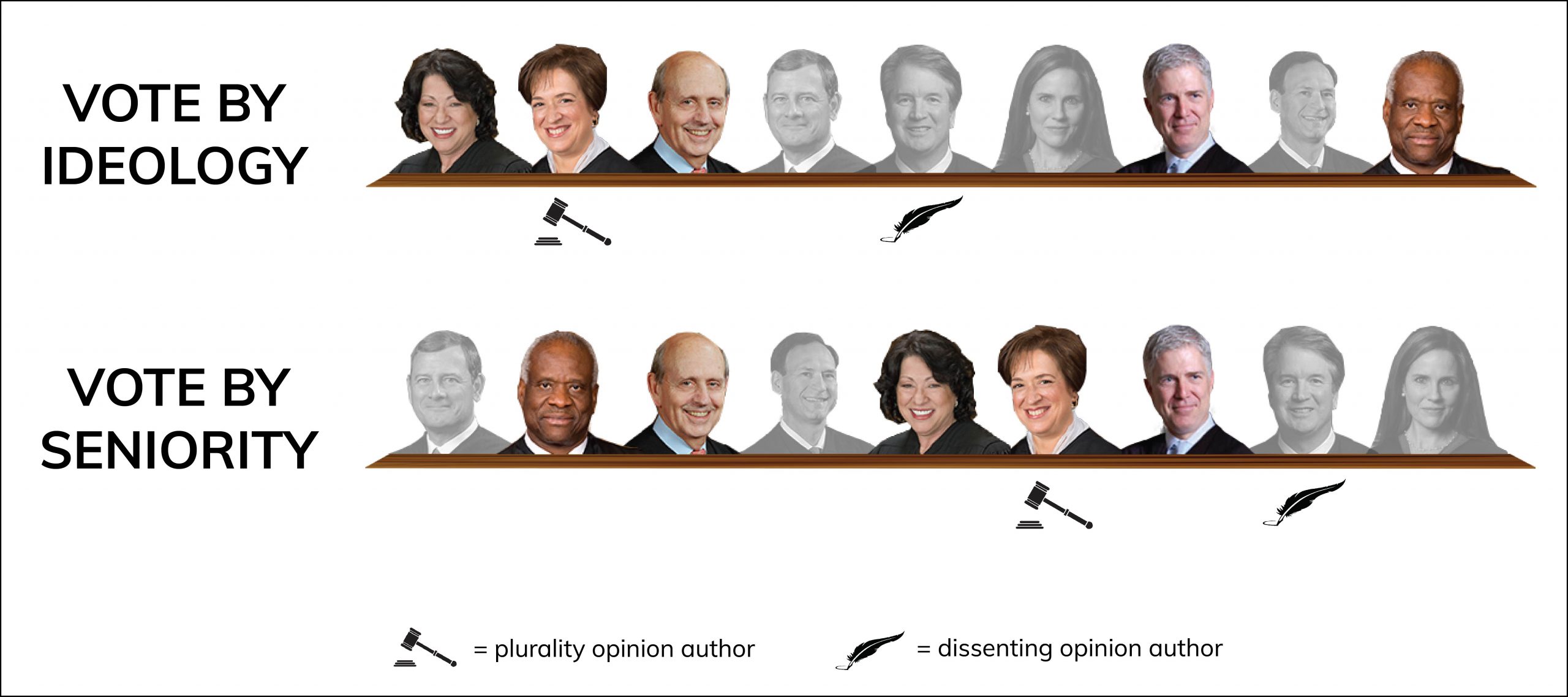SCOTUS News
Court limits definition of “violent felony” in federal gun-possession penalty

on Jun 10, 2021 at 1:13 pm

A fractured Supreme Court on Thursday narrowed the scope of a key phrase in the Armed Career Criminal Act, ruling that crimes involving recklessness do not count as “violent felonies” for the purpose of triggering a key sentencing enhancement.
Justice Elena Kagan announced the judgment of the court and wrote an opinion that was joined by Justices Stephen Breyer, Sonia Sotomayor and Neil Gorsuch. Justice Clarence Thomas did not join Kagan’s opinion but concurred in the result. That means that five justices rejected the federal government’s more expansive interpretation of the term “violent felony” and handed a victory to a criminal defendant who argued that the sentencing enhancement did not apply to his conduct.
The case, Borden v. United States, involved a provision of ACCA that imposes a 15-year minimum sentence on anyone convicted of being a felon in possession of a firearm if the person has three or more prior convictions for a “violent felony.” The term “violent felony” is defined, in relevant part, as any felony that “has as an element the use, attempted use, or threatened use of physical force against the person of another.”
Charles Borden Jr. pleaded guilty to a felon-in-possession charge, and the government sought the sentencing enhancement under ACCA. Borden argued that the enhancement did not apply because one of the three prior offenses that the government relied on was a conviction under Tennessee law for reckless aggravated assault. That crime, as its name suggests, can result from reckless conduct – a less culpable legal standard than purposefully or knowingly causing injury. Borden argued that only purposeful or knowing conduct can meet ACCA’s definition of “violent felony.” Mere recklessness, he said, does not qualify.
The U.S. Court of Appeals for the 6th Circuit disagreed with Borden and ruled that a crime involving recklessness counts as a “violent felony” that will trigger ACCA’s sentencing enhancement. The Supreme Court reversed that decision on Thursday.
Kagan’s opinion for a four-justice plurality focused on the phrase “against the person of another” in ACCA’s definition. That language, she concluded, encompasses only purposeful or knowing crimes, not reckless ones.
“The phrase ‘against another,’ when modifying the ‘use of force,’ demands that the perpetrator direct his action at, or target, another individual. Reckless conduct is not aimed in that prescribed manner,” Kagan wrote.
Thomas, in a solo concurrence, reluctantly agreed with the result. He agreed with Kagan that Borden’s Tennessee reckless-assault conviction does not count as a crime that “has as an element the use, attempted use, or threatened use of physical force against the person of another.” But his reasoning was different. Rather than rely on the phrase “against the person of another,” Thomas focused on the phrase “use of physical force.” That phrase, Thomas said, is limited to intentional acts designed to cause harm.
Thomas went on to say that, in his view, a separate provision of ACCA’s definition of “violent felony” should capture Borden’s reckless-assault conviction. That provision – the definition’s so-called residual clause – includes any felony that “involves conduct that presents a serious potential risk of physical injury to another.” But six years ago in Johnson v. United States, the Supreme Court ruled that the residual clause is so vague that it is unconstitutional and therefore cannot be enforced. In his concurrence, Thomas called on the court to overrule Johnson.
Kavanaugh’s 38-page dissent (longer than Kagan’s plurality opinion and Thomas’ concurrence combined) accuses Kagan of adopting a tortured reading of the phrase “against the person of another” to limit the reach of the statute. “The Court’s decision overrides Congress’s judgment about the danger posed by recidivist violent felons who unlawfully possess firearms and threaten further violence,” Kavanaugh wrote.
Check back soon for in-depth analysis of the opinion.


